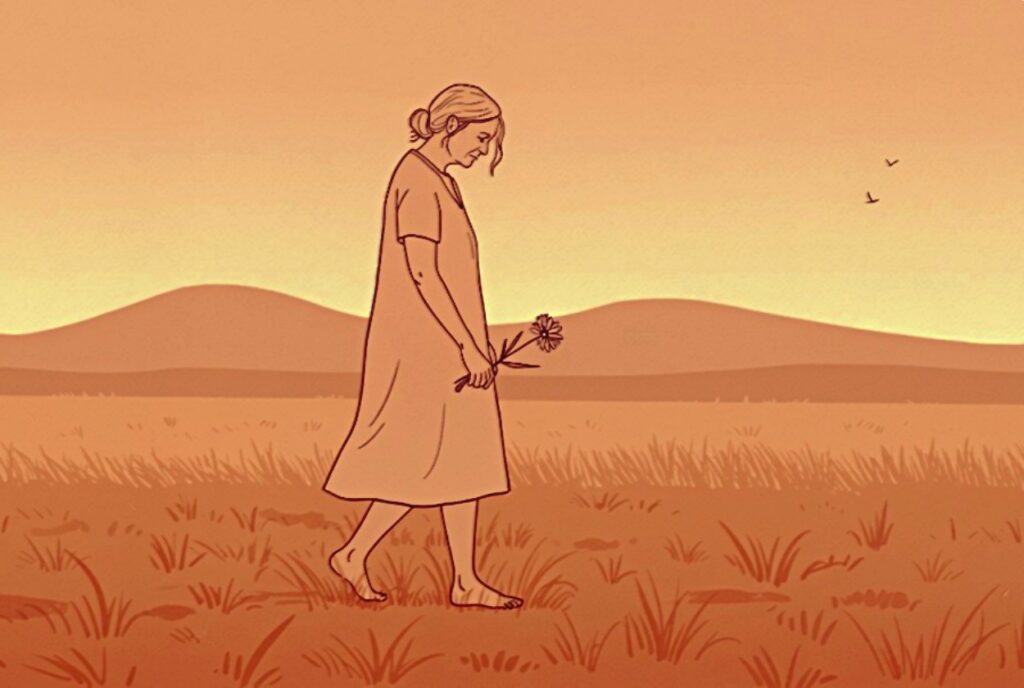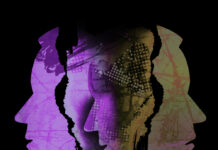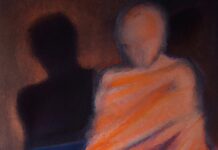I remember the moment the psychiatrist handed me the script. It was not a dramatic moment. No shouting, no crying. Just a quiet, firm assertion that if I didn’t take the medication, I would not get better. Paroxetine, 20 mg. “You’re highly anxious,” she said. “This will help regulate the serotonin levels in your brain. You’ll think more clearly.”
The irony? I was a counselor. A trauma-informed, art-based, deeply invested-in-people kind of counselor. I had trained for this. Believed in the body-mind-spirit connection. Supported others in processing grief, trauma, disconnection. Yet here I was, being told that what I felt, what I thought, what I knew to be true, was just chemistry. I was, in her eyes, a brain in imbalance.

I protested at first. I said I wanted to heal, not numb. I had explored the roots of the anxiety for years in therapy—from childhood abuse to unresolved grief—but was told this was something I would simply have to manage for the rest of my life. There was no talk of overcoming it, only of keeping it under control. I said I believed in neuroplasticity, in meaning-making, in connection. But I was tired. So tired. I had been fighting for so long to stay afloat while counseling others, managing family, and trying to survive my own trauma history. I was told this was the “therapeutic level” I needed to reach before therapy could even begin. And then the familiar script: “You wouldn’t deny insulin to a diabetic, would you?”
I swallowed the first pill reluctantly. The first few days were surreal. Side effects, yes. But more than that, a sense of unease in my spirit. Like I had just betrayed something sacred inside myself. My clarity. My knowing. My voice.
Over time, the fog set in. Not all at once. But slowly, almost imperceptibly. My thoughts became duller, my reactions slower, my feelings muted. I still painted, but the work lacked the depth and risk it once held. My journal entries flattened. My body felt foreign. I lost the wildness, the spark, the ability to cry freely or laugh uncontrollably. My clients noticed too. I withdrew from my practice, telling myself I needed a break, when in fact I no longer trusted my own intuition.
The most painful part? I started to believe the diagnosis. Maybe I was just broken. Maybe this was as good as it got.
But something inside me never stopped whispering. Something primal. Spirit-breathed. It came alive in the quiet hours, in the presence of trees, in the pull of the paintbrush across canvas. I began to question. Not loudly, not defiantly. Just gently. I asked: What if this isn’t the truth? What if this pill is a cage, not a cure?
The decision to taper was mine. No doctor encouraged it. In fact, I was warned. Told that the symptoms I experienced upon reducing the dosage would be “proof” that I needed to stay on it. But I had read enough by then. I had listened to stories. I had felt the flicker of my own soul returning. And I wanted out.
Withdrawal was brutal. The “brain zaps,” the vertigo, the emotional waves, the shallow breathing. I also experienced dissociation—like I was floating outside myself, watching from a distance as I moved through daily life. But alongside the suffering came moments of breathtaking clarity. My memory returned. My sense of humor. My voice. I painted again—bold, risky strokes. I cried deeply. I laughed till my stomach hurt. I found my feet on the earth, barefoot, breathing, remembering.
And I realized something terrifying and beautiful: I was never ill in the way they claimed. I was traumatized. I was grieving. I was carrying the weight of stories and wounds that had never been held with care.
Psychiatry never asked me about that. Not really. They didn’t ask about the abuse, or the medical gaslighting, or the years of survival. They asked if I had trouble sleeping, if I felt overwhelmed, if I had panic attacks. I said yes. They said, “chemical imbalance.”
I say now: trauma response.
My healing didn’t begin with that pill. It began the moment I stopped handing over my truth for someone else to interpret. It began when I chose to feel again—all of it. The raw, the real, the terrifying, the holy.
The day I left the psychiatric hospital, I signed myself out against medical advice. I remember standing by the window with my packed bag, waiting for my husband. The staff avoided my eyes. I wasn’t combative; I was simply done. My voice was quiet, but firm. I walked down the hallway with dignity, not as a defeated patient, but as a woman reclaiming her life. My husband opened the car door, and as I climbed in, I felt the weight of freedom settle in my chest. I was terrified. I was elated. And I was finally on my way home—not just physically, but to myself.
And now, I speak. Not as a victim, not as a rebel. But as a woman who reclaimed her knowing.
We need to rethink psychiatry. Not because it is all wrong. But because it is not enough. Because it often silences the very voices that hold the key to healing. Because it fears what it cannot quantify. Because it pathologizes pain rather than honoring it.
There is a place for science. For medicine. But there must also be room for mystery, for story, for the wisdom of the body and spirit. There must be room for the barefoot woman walking in the veld, weeping and laughing and finally, finally coming home.
My story is not over. But it is mine again.
And that is where the healing truly begins.















Baie dankie Trudie.
Report comment
Plesier Jeannie. Mag my storie vir jou en almal in jou wêreld, moed gee. Dis nie maklik nie, maar dit is moontlik.
Report comment
A really Beautiful story!!!!
Please come discover another approach to trauma. Neurofeedback. I have been practucing this for 31 years and have walked the discontinuation path with many. Healing is possible, neuroplasticity is real. This is not the path of medication. Bandaids are only useful to allow the body to accomplish the healing pathways. Medications do not offer healing. Teaching your brain new pathways that help process differently do allow the work of the individual to heal.
I celebrate your healing!!!!
Report comment
Thank you Joy! What a beautiful name. I have various practices in place that intentionally work at. Firstly my faith, talking it out with God. Then writing, art and exercise. When I do struggle, I do grounding work for immediate relief and my own, learn as i go version of neurofeedback. I am daily amazed at how my middle aged brain is still able to change old pathways! Thanks for the support.
Report comment
Reclaiming your voice is very important, but it’s wise to keep quiet around people trained to “diagnose” viewpoints that don’t please them.
Report comment
Yes, wisdom is important, but paired with a certain amount of bravery, knowing that I am swimming upstream with my views. But what can they do to me now? Criticize me, judge me, push me away? None of those responses can affect my life anymore. They are free to live their lives and so am I.
Report comment
I don’t know what the mental healthcare system is like in South Africa, but it’s grown more adversarial here in the U.S.
In any case you seem much braver than I am.
Report comment
“My thoughts became duller, my reactions slower, my feelings muted.”
Psychiatric drugs silence/disable the most precious thing in life: a sublime sense of wonder and joy.
Report comment
You bet! So precious and painful at the same time.
Report comment
Yes. Sensitivity is both a blessing and a curse, but that’s what makes life so sublime.
Report comment
Psychiatric drugs don’t just dampen emotions—they extinguish the spirit.
Report comment
This is my view. The spirit is eternal. It is the part of us that is constantly searching for meaning. That asks the big questions. Why am I here? What is the meaning of pain? And we are not powerless. We can choose to reclaim and honor that voice. For those who feel helped by the drugs, that is their choice. Mine and yours are to take a different path. May you find answers to your why’s as well.
Report comment
Thank you.
I very much believe in ‘to each his own’, but that doesn’t extend to being misinformed or coerced—especially by people who live off the public’s trust.
Report comment
I agree. I was coerced. And pressured. Maybe this way is all they know, all they have been trained to do. When I counsel people, I also have a certain mindset and methodology which I bring into that space. And I am also accountable for how I handle other people’s emotions. But, yes, there is a line and in my case it was definitely crossed.
Report comment
Thankfully and at last, people are beginning to find that they can take back their lives and find answers beyond the world of scientism. We need to realize that the medical model has no place in the metaphysical dimension–the soul cannot be “fixed” using medical intervention. It is my hope that, like you Trudie, we may understand that the way to healing is through a true connection to Spirit. (This does not necessarily mean a religious way nor is it the New Age system, although we may see some connections in both.) What I see it as, is more of a deep personal journey to discover oneself. I applaud your courage!
Report comment
Thank you Lynne! Body, mind and spirit is my belief. Neglect or hurt the one part, you hurt all. We have to be very wise in who we trust with our exposed selves. May God be glorified.
Report comment